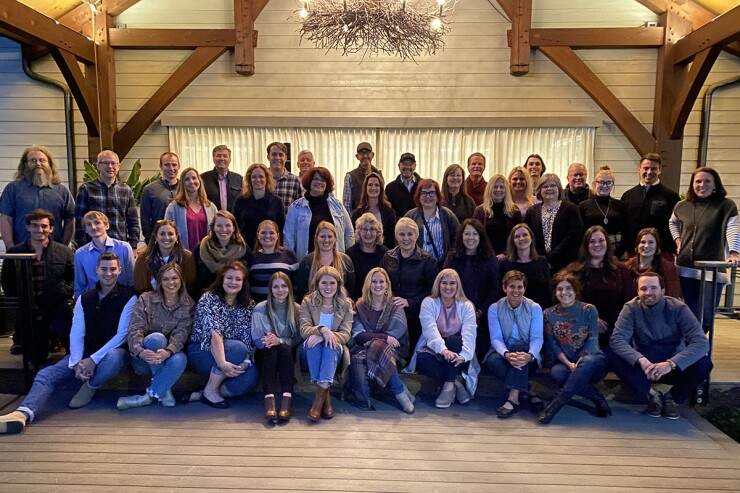Fee-only registered investment advisory firm
The addition of Parsec Financial, an Asheville, North Carolina-based RIA with 76 financial advisors and other employees managing $3.75 billion in client assets, pushed Westwood, New Jersey-based Modera's size up to $10.5 billion with a staff of 180 across 14 offices,
"Our growth is very deliberate; it's not growth for the sake of growth. We don't expect we're going to find another partner like Parsec anytime soon," Orecchio said in an interview. "We're looking for fee-only, fiduciary RIAs that share our investment philosophy … The investment philosophy has to fit because we just don't feel comfortable telling multiple investment stories out of the same shop."
Modera was the No. 30 firm last year on
Industry dealmakers say that while wealth management transactions have changed amid inflation, higher interest rates and concerns about a potential recession, they haven't slowed down in a meaningful way. At a panel last week held by investment banking firm
"There's a tremendous benefit to clients of getting more resources. There's a tremendous benefit to advisors being part of a larger whole without really necessarily giving up autonomy and things that they care about, but getting resources from a central function that can delve into things much deeper," Bhattacharyya said. "The secular reasons will continue, so I think what you'll see is people will continue to do deals."
In each of the last three years, Hightower has spoken with about 400-600 potential sellers, entered into serious talks with roughly 40 and completed around 15 to 20 deals, according to Cabezas. Other strategic acquirers have taken notice in these economic times, when it's no longer possible for them to be "indiscriminate buyers," he said.
"Today, more than ever, that's a pretty universal theme across the strategics out there," Cabezas said. "Firms are being way more selective on where they want to spend their time. Just because capital is more expensive, firms have to be way more disciplined in how they choose to deploy."
With Parsec, Modera added a firm that had just five employees and less than $400 million in assets under management when CEO Rick Manske joined in 1996. Two dozen Parsec employees picked up Modera stock as part of the deal, and Manske has joined the firm's board alongside former Parsec Chief Operating Officer Harli Palme.
She's taken the same title at Modera, while Manske has become the firm's chief growth officer. As part of all of Parsec's employees moving to the new firm, Chief Investment Officer Bill Hansen will share that title with Modera's existing chief investment officer as well. Park Sutton Advisors, a Waller Helms Company, advised Parsec on the deal.
Parsec's leadership chose Modera based on "seeing the benefit of the scalability" and "providing the best opportunity for our talented staff," Manske said in an interview.
"There were the economic reasons of scalability, but we're really trying to transform and create something special that doesn't exist right now," he added.
At least 61 employees of Modera now have a stake in the RIA, which also receives minority backing from private investment firm
Despite its big and rapidly expanding size, the firm's executives don't find maintaining the fee-only, fiduciary model difficult, he said.
"One of the questions that comes up every single time is, 'How is this good for the client?'" Orecchio said. "As long as you keep that front and center, it informs a lot of your decision-making going forward."








